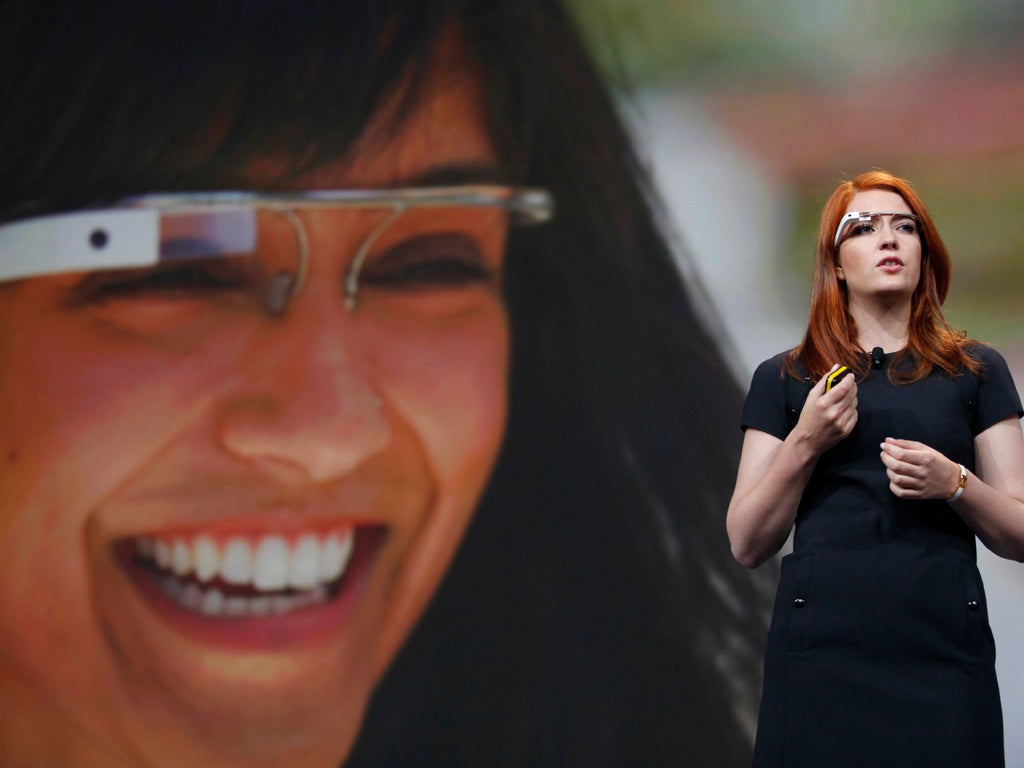Forget privacy – it’s conversation Google is killing
It is a bit sad to see how people are isolated in a sort of virtual world via the internet

There was a time when smart might have meant being clad from head to toe in bespoke clothing.
Now, thanks to US electronics, smart will mean being topped and tailed by Google. At last week’s annual SXSW conference in Texas – a media and technology love-in – the internet search company unveiled not just the first full demonstration of its glasses which can search the internet and display results in the user’s eyeline; but also prototype electronically enhanced footwear which will provide instant feedback to the wearer as to his or her physical performance and needs, via a speaker embedded in one of the shoes’ tongues.
Or, as the headline in Scientific American put it: “Shoe puts mouth in foot.” Well, it seems stupid to me, too. But Google’s spokesperson enthusiastically proclaimed that the shoe will use data from the user to create an appropriate personality: “If you start running and the shoe has an athletic personality, it will cheer you on. But if it has a lazy personality, it will get upset with you for being athletic.” To think, we have been spending all these years wearing shoes which couldn’t tell us how to walk: however did we manage?
I’m far from persuaded that this innovation is not a spoof, a rare example of humour from the techno-visionaries at Google. However, there’s no mistaking the deadly seriousness of the Google Glass project. These apparent spectacles, which look no heavier or more intrusive than a standard pair, contain a tiny camera and a web browser which displays downloaded information on a miniature screen, similar to the heads-up display pioneered for use by fighter pilots. The touchpad for this marvel of modern electronics is one of the arms of the glasses: so when you see someone rubbing the side of his spectacles in a significant manner, you’ll know your flies are undone and he’s taking your picture before downloading it to his friends. Or something like that.
Perhaps we shouldn’t joke about it. Mark Hurst, the author of Bit Literacy, is far from amused. He writes that: “The key experiential question of Google Glass isn’t what it’s like to wear them, it’s what it’s like to be around someone who’s wearing them... it’s not a stretch to imagine that you could be immediately identified by that Google Glass user who gets on the bus and turns the camera towards you. Anything you say within earshot could be recorded, associated with the text, and tagged to your online identity. And stored in Google’s search index. Permanently.”
Unfortunately, that particular horse had bolted long ago and is much too far away to be captured and put back in the stable; so I don’t see how much more significant an invasion of privacy Google Glass is, beyond what can currently happen with Android smartphones and the like. Yes, it might be less easy to detect that someone is snooping than with a phone held in the hand; but once we are users of Google or the internet more generally – let alone Facebook – our traditional idea of privacy is already compromised from here until eternity.
As Professor Michael Franklin observed in The Death of Privacy?, published all of 13 years ago: “The rapid deployment of privacy-destroying technologies by governments and businesses threatens to make informational privacy obsolete. These technologies include routine collection of transactional data, growing automated surveillance in public places, cell-phone tracking, satellite monitoring, internet tracking from cookies to ‘clicktrails’... and sense-enhanced searches that allow observers to see through everything from walls to clothes.”
No, the issue with Google Glass is more that it will make its users even more detached from the immediate real world (it does exist) and even more dependent on what has become known as augmented reality. It is already a bit sad to see how many people have withdrawn from interaction with their physical and human surroundings and instead have become isolated in a sort of virtual world via the internet. I know some psychologists claim that even in the pre-internet age, we have always been prone to making ourselves the heroes in an internal screenplay of our own lives, which is both self-centred and distorted. But that, at least, requires acts of imagination – rather as lonely children would invent a host of characters for their own entertainment. One concern with the augmented reality facilitated by electronics and wireless technology is that it destroys the internal, meditative and intensely individual world of the imagination and replaces it with constant commercial static.
I admit to being an assiduous user of Google in my capacity as a journalist, sitting at my desk: as a source of information and archive material, the internet is a professional godsend. Yet when out and about, I use a mobile phone which is just that: a phone. It has no internet connection and no in-built camera (although it does have a mini-torch, useful for finding keys dropped on the pavement in the dark).
Thus undistracted, I am able to study my fellow human beings and even engage them in conversation in train carriages. Unfortunately, ever fewer of them are available for such old-fashioned social intercourse, since they are tip-tapping away in texted conversations with people they already have stored in their devices: and in future they will doubtless be wearing Google Glasses, perhaps trolling profanely on websites while appearing to scratch their ear. They will talk only when told to by their shoes.
d.lawson@independent.co.uk
Subscribe to Independent Premium to bookmark this article
Want to bookmark your favourite articles and stories to read or reference later? Start your Independent Premium subscription today.

Join our commenting forum
Join thought-provoking conversations, follow other Independent readers and see their replies